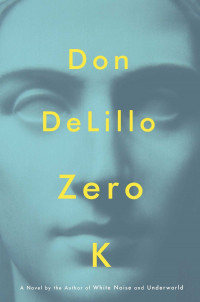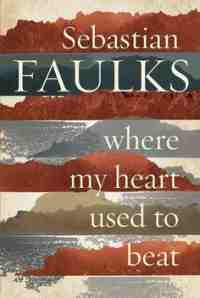
Published by Scribner on May 3, 2016
Is life anything more than the absence of death? The question is at the heart of Zero K, a novel about life and death. What else would a Don DeLillo novel be about?
DeLillo tells us that death is coming. It may claim an individual (cancer, heart failure) or a large population (terrorism, pandemic, global warming). The odds are good an extinction event will eventually wipe out humanity. “Catastrophe is our bedtime story.” Yet even as life becomes more fragile, humans find the possibility of death increasingly unacceptable.
Jeffrey Lockhart’s wealthy father has taken Artis, his current wife, to an underground facility in a remote part of the world where she will be placed into cryogenic suspension, followed by emergence “in cyberhuman form into a universe that will speak to us in a very different way.” The facility’s approach to death avoidance, unlike Jeffrey, is deeply philosophical, blending science with a variety of new age perspectives, some of which DeLillo presents with tongue-in-cheek.
The first section of the novel takes place at the facility, to which Jeffrey has traveled at his father’s request so he can be present when Artis dies. Jeffrey engages with his father and with Artis as she prepares for death, preservation, or transition (whatever that fate might turn out to be)). He also engages with contemplative individuals who serve ambiguous purposes within the facility. While Jeffrey’s engagement is more an act of observation than interaction (he prefers to invent names for people rather than learning their actual names), one of the monks me meets is even less interactive. Perhaps being surrounded by death has that effect.
DeLillo may have intended Jeffrey to represent what life has become in the 21st century, as acts of atrocity and terror bombard us from screens that isolate us from the horror those scenes should inspire while impairing the ability to form true connections with others. Jeffrey sees a fair share of horror on screens (horror as art) during the novel, including one particularly jarring incident to which he should have a personal connection, but it isn’t clear that he processes what he sees on a human level, not in the way he experienced his own mother’s lingering death when he was a child. Perhaps the point is that 24-hour news coverage has inured us to death, has made death impersonal even when it should be very personal.
In the novel’s second part, the emphasis shifts from death to life. Jeffrey’s life involves a woman named Emma and her adopted Ukranian son. According to his father, Jeffrey has drifted through his life without having lived it. Later in the novel, Jeffrey acknowledges that he has made wasting time a life pursuit. Yet he inspects every minute in his life, counts his strides as he walks. He lives in the moment, as self-help gurus urge us to do, but is that enough? Jeffrey observes the homeless but he cannot image their lives. He interviews for jobs he will never accept. The reader is prompted to wonder whether, in Jeffrey’s case, the difference between life and death is significant. In the grand scheme of things, will Jeffrey’s life (or anyone’s) matter?
Depressing thoughts, yes, but DeLillo always adds humor to his darkness. Zero K is in part a playful novel about the power of language. Jeffrey sees the world in relationship to the words that define it. As a child, he was obsessed with precise definitions, often concocting his own, giving substance not just to the word but to the thing the word symbolizes. Like inventing his own names for people, concocting his own definitions is a habit he never lost.
The themes of language and death come together as a character suggests that “we have language to guide us out of dire times.” Perhaps we can defeat death by talking about it. Or perhaps we can assure that our consciousness will persist after our bodies die if we “follow our words bodily into the future tense.” As a novelist, it may be DeLillo’s hope that words live on even after the body dies.
The new universe that Artis will enter (Jeffrey is told) will have its own language, the language of truth, free from metaphor and ambiguity, something akin to the language of mathematics. Yet as she approaches or enters death, Artis is a being “made of words.” She does not know what the words mean but she feels they are important. What is time? What is now? What is place? “What does it mean to be who I am?” That is life’s fundamental question and, if it is unanswerable, DeLillo at least has fun exploring it.
Zero K doesn’t cohere as well as I might have liked, but neither does life. I have admired other DeLillo novels more than this one, but I suspect that this is a novel that improves with a second reading. Maybe I'll give it one if I live long enough.
RECOMMENDED
 Friday, May 6, 2016 at 9:03AM
Friday, May 6, 2016 at 9:03AM 



